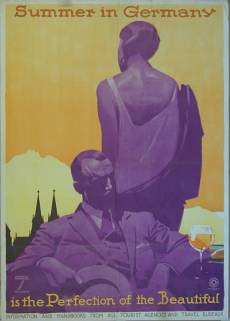
Truth always beats fiction, but this time, fiction beats fiction... or maybe I'm just so fine-tuned to the 1920's and -30's that this is bound to happen.
One of the main characters of my comic Goldenbird is a fledgling Catholic deacon and Venetian native called Falco Peregrini. Some weeks ago I made a goofy "what-if" drawing where he is dressed up like a Turkish (late Ottoman era) scribe, inspired by the popular song "Katibim". I just love to play dress-up with my characters...
Today I was googling around for references to the name "Peregrini", which is pretty rare as an alternative spelling for Pellegrini. And what do I find? Sinekli Bakkal, a Turkish novel from 1935, dealing with typical Modernist issues of emancipation, faith and Westernization. The main character is the Italian pianist Peregrini, an ex-priest (!) who has left the "cold spiritual climate" of the West. In late 19th century Istanbul, he learns to know Rabia, a hafiza (reciter of the Holy Quran), who shares his love for music and artistic beauty, as well as the preference for simple life and the common people under the oppressive regime of the Sultan.
The writer Halide Edib chose a very independent path for the protagonists of Sinekli Bakkal. Instead of going with the flow of cultural Westernization, so politically correct for Turkey during the Atatürk years, she chose to show "Easternization" as a path to personal fulfillment and freedom. Rabia is an independent and well-respected woman due to her artistic skills and learning; the unbeliever Peregrini converts to Islam, and they marry... happily ever after? I don't know - I haven't read the novel myself (goes on the never-ending list)....
 Screencaps from the 1967 movie version, found on a Turkish forum. Rabia is played by Türkan Soray and Peregrini by Ediz Hun (the guy who looks like Omar Sharif!). Note the fez (outlawed in 1925).
Screencaps from the 1967 movie version, found on a Turkish forum. Rabia is played by Türkan Soray and Peregrini by Ediz Hun (the guy who looks like Omar Sharif!). Note the fez (outlawed in 1925).There's a mixed bag of literary analyses and articles online:
Nationalist Theory in the Writings of Halide Edib (Duygu Köksal)
An Epic for Peace (Hülya Adak)
Das Patriarchat entlässt seine Töchter (11/10 2008, Neue Zürcher Zeitung)
Memoirs of Halide Edib (Google Books)
I haven't found a discussion of Halide Edib's choice of the name Peregrini yet, but I'd like to think that she had similar thoughts as I: Peregrinus means wanderer (or stranger) in Latin, and it is the source for the word pilgrim in many languages.

